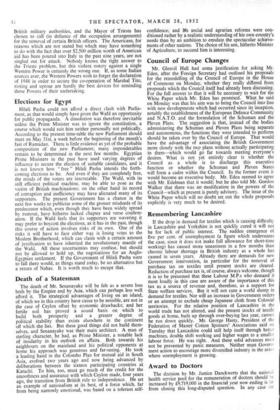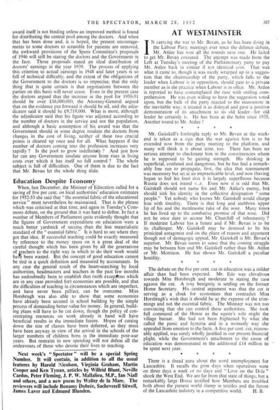Award to Doctors
The decision by Mr. Justice Danckwerts that the national health service pool for the remuneration of doctors should he increased by 0,719,000 in the financial year now ending is far from closing this long-disputed question. In any case the award itself is not binding unless an improved method is found for distributing the central pool among the doctors. And when that has been done and, it is hoped, the present encourage- ments to some doctors to scramble for patients are removed, the awkward provisions of the Spens Committee's proposals of 1946 will still be staring the doctors and the Government in the face. Those proposals stated an ideal distribution of doctors' earnings in the year 1939. The process of applying this criterion to actual earnings in 1948 and later years is so full of technical difficulty, and the extent of the obligations of the Government to the doctors is so imprecise, that the only thing that is quite certain is that negotiations between the parties on this basis will never cease. Even in the present case the doctors argued that the increase in the pool for 1950-51 should be over £16,000,000, the Attorney-General argued that on the evidence put forward it should be nil, and the adju- dicator said it should be £9,719,000. What is more, although the adjudicator said that his figure was adjusted according to the number of doctors in the service and not the population, and although a basic assumption of his award was that the Government should in some degree insulate the doctors from changes in the cost of living, neither of these two crucial points is cleared up once and for all. What happens if the number of doctors coming into the profession increases very rapidly ? Is the pool to grow indefinitely ? And just how far can any Government insulate anyone from rises in living costs over which it has itself no full control ? The whole subject is full of difficulties. One of them is due to the fact that Mr. Bevan let the whole thing slide.



































 Previous page
Previous page